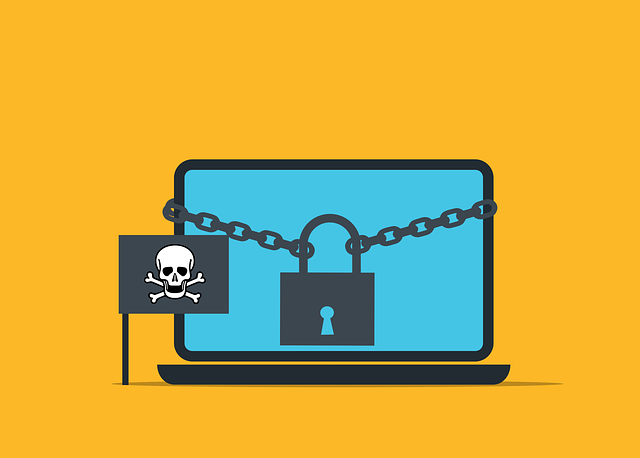Accounting firms face escalating cybersecurity risks due to sensitive financial data and increasing digital operations, including traditional threats like phishing and malware, plus new industry-specific dangers such as APTs and ransomware. To mitigate these risks, CPAs should prioritize robust password policies, multi-factor authentication (MFA), regular phishing awareness training, a CPA firewall for network traffic monitoring, advanced threat detection systems, and proactive security measures. A multi-layered CPA threat protection strategy is essential to safeguard digital assets from evolving online dangers, ensuring confidentiality, integrity, and availability of data.
In today’s digital landscape, accounting firms face unique risks with their substantial reliance on sensitive financial data. As cyber threats evolve, implementing robust CPA threat protection is paramount to safeguard digital assets and maintain client trust. This article explores a comprehensive strategy for accounting professionals, delving into essential components like access controls, data encryption, network security, and continuous monitoring. By adopting these measures, firms can mitigate risks effectively, ensuring the integrity and confidentiality of their financial information.
- Understanding the Unique Risks Facing Accounting Firms
- Essential Components of a Comprehensive CPA Threat Protection Strategy
- Implementing Strong Access Controls and Authentication Measures
- Effective Data Encryption and Backup Solutions for CPAs
- Network Security: Protecting Firm Infrastructure from Cyberattacks
- Continuous Monitoring, Training, and Adaptation in the Face of Evolving Threats
Understanding the Unique Risks Facing Accounting Firms

Accounting firms face unique challenges when it comes to cybersecurity due to their sensitive financial data and increasing digital operations. The traditional risks, such as phishing and malware attacks, are still prevalent, but there are new threats emerging that specifically target the accounting industry. With the rise of cloud computing, remote work, and digital financial transactions, CPAs now have to contend with advanced persistent threats (APTs), ransomware attacks, and data breaches tailored to exploit their specific operations. These attacks can lead to severe consequences, including data loss, financial harm, and reputational damage.
One key area of focus for enhancing security is password security accounting. Weak or reused passwords are a primary entry point for cybercriminals. Implementing robust password policies, multi-factor authentication (MFA), and regular training on phishing awareness can mitigate these risks. Additionally, setting up a CPA firewall acts as a vigilant guardian, monitoring network traffic and blocking unauthorized access attempts. Advanced threat detection systems further enhance security by identifying suspicious activities and potential vulnerabilities, ensuring that accounting firms stay one step ahead of emerging threats.
Essential Components of a Comprehensive CPA Threat Protection Strategy

In today’s digital age, accounting firms face a multitude of cyber threats that can compromise their sensitive financial data and client information. To fortify against these dangers, a comprehensive CPA threat protection strategy is imperative. This involves integrating multiple layers of security measures, beginning with robust advanced threat detection systems capable of identifying even the most subtle and sophisticated attacks. Regular security audits and penetration testing are crucial to assess vulnerabilities and ensure continuous improvement in data security plans for CPAs.
Additionally, training staff on cybersecurity best practices is vital. Educating employees about phishing defenses CPAs need, such as recognizing suspicious emails and links, can significantly reduce the risk of human error leading to data breaches. Implement strong access controls, encryption protocols, and regular software updates to create a formidable defense against cybercriminals targeting accounting firms. Such proactive measures ensure that CPA threat protection is not just a reactionary effort but a dynamic, adaptive process designed to safeguard digital assets in an ever-evolving landscape of online dangers.
Implementing Strong Access Controls and Authentication Measures

Implementing robust access controls and authentication measures is paramount for CPA firms aiming to safeguard their digital assets. With sensitive financial data at risk from increasingly sophisticated cyber threats, strong access controls are the first line of defense. This involves employing multi-factor authentication (MFA) to ensure that only authorized individuals can access critical systems and information. By combining something the user knows (like a password), something they have (like a token or smartphone app), or something inherent to them (biometric data), MFA significantly enhances security.
Additionally, advanced threat detection solutions play a crucial role in identifying and mitigating potential risks. Email protection for CPAs is another vital component, as phishing attacks often target accounting professionals with malicious emails. Implementing identity protection measures tailored for accounting firms helps to safeguard against insider threats and unauthorized access attempts. By combining these strategies, CPA firms can create an impenetrable digital fortress, ensuring the confidentiality, integrity, and availability of their valuable data.
Effective Data Encryption and Backup Solutions for CPAs

In today’s digital landscape, effective data encryption and backup solutions are paramount for Certified Public Accountants (CPAs) to safeguard their firm’s sensitive information. With the increasing sophistication of cyber threats, CPAs must implement robust security measures to protect client data, financial records, and intellectual property from potential breaches and disruptions. Advanced encryption technologies ensure that even if unauthorized access is gained, data remains unreadable without the proper decryption keys. This two-pronged approach—robust encryption for data at rest and in transit, coupled with reliable backup systems—serves as a cornerstone of comprehensive CPA threat protection.
Moreover, integrating identity protection accounting practices, such as multi-factor authentication (MFA), further fortifies security measures. By adding an extra layer of defense to user access, MFA significantly reduces the risk of unauthorized entry into critical systems. Additionally, email protection CPAs can leverage specialized tools to combat phishing attacks, a prevalent method used by cybercriminals to trick users into divulging sensitive information. Implementing these defense mechanisms not only safeguards against data breaches but also helps maintain client trust and ensures business continuity in an increasingly perilous digital environment.
Network Security: Protecting Firm Infrastructure from Cyberattacks

In today’s digital landscape, accounting firms face a heightened risk of cyberattacks, making robust network security an absolute necessity. With sensitive financial data and client information at stake, protecting the firm’s infrastructure is paramount to maintaining trust and ensuring business continuity. Compliance-level security measures, such as implementing advanced threat detection systems, play a crucial role in identifying and mitigating potential risks. By employing these tools, accounting firms can effectively defend against malicious activities like ransomware, phishing schemes, and data breaches.
A key component of network security is the strategic placement of firewalls, particularly for CPAs (Certified Public Accountants). Setting up a robust CPA firewall setup acts as a formidable barrier, filtering network traffic and blocking unauthorized access attempts. This layered defense mechanism, combined with regular updates and patches, ensures that the firm’s digital assets are safeguarded against evolving cyber threats, fostering a secure environment for accounting operations.
Continuous Monitoring, Training, and Adaptation in the Face of Evolving Threats

In today’s digital landscape, where threats are constantly evolving, accounting firms must adopt a proactive approach to IT security. Continuous monitoring is key; firms should employ advanced threat detection systems that can identify and mitigate potential risks in real-time. By staying vigilant, CPAs can safeguard their digital assets and sensitive client data. This involves regular reviews of network activity and rapid response to any anomalies.
Training is another vital component. Educating employees about security best practices and the latest CPA threat protection measures ensures a robust defense against cyberattacks. Staying informed about emerging threats enables firms to adapt quickly, implementing necessary changes to their compliance-level security protocols. Moreover, fostering a culture of awareness can help identify potential vulnerabilities before they are exploited, enhancing overall cloud security for CPAs.
